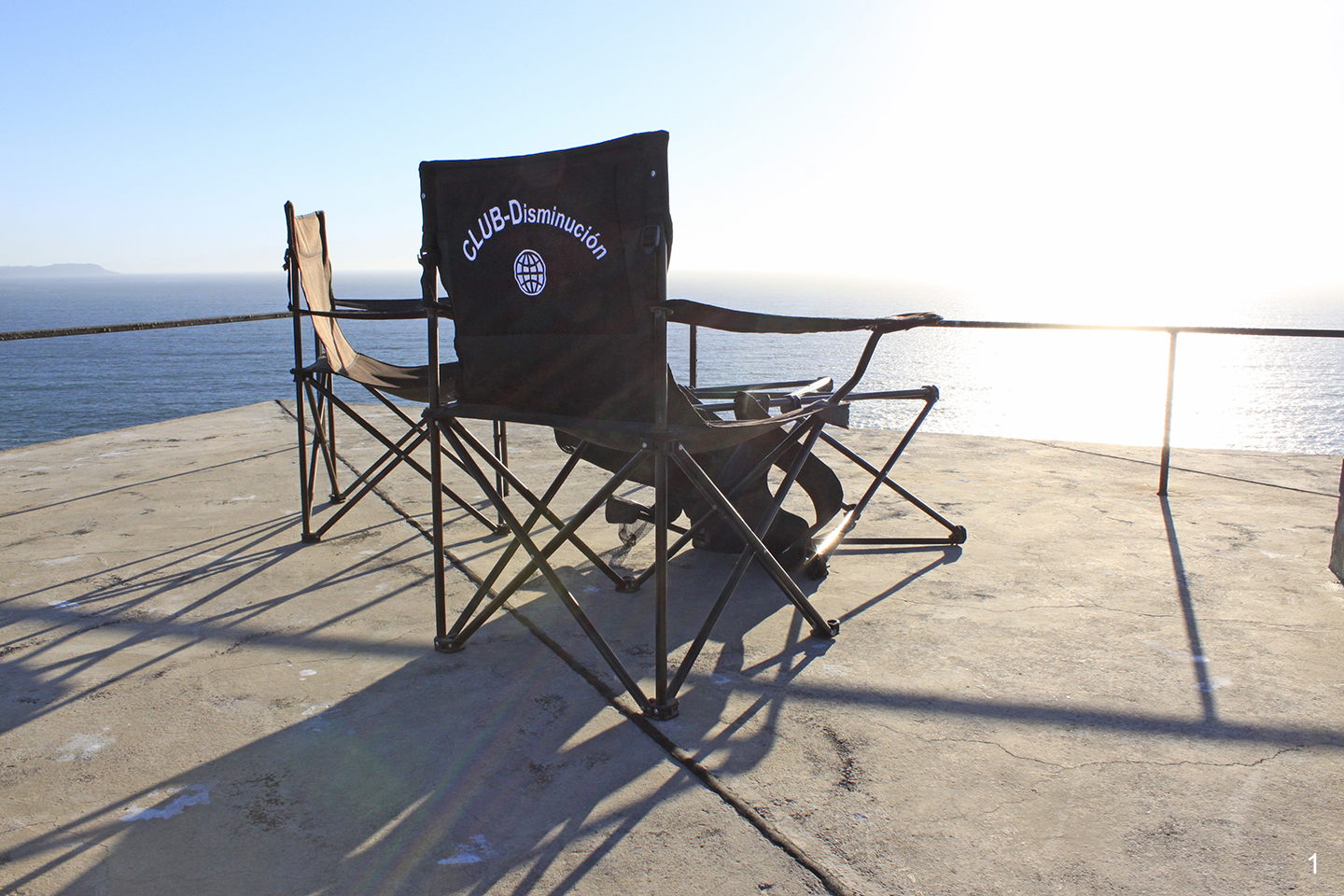CASAPOLI, Coliumo, Chile
Situated in a spectacular cliff overlooking the Pacific Ocean, CASAPOLI is a private, not-for-profit, cultural center founded by Eduardo Meissner, Rosmarie Prim, Sofia von Ellrichshausen and Mauricio Pezo. The center was founded in 2003 with the purpose of stimulating critical thought and experimental art in the Bío-Bío región of Chile. Artists Leslie Fernández and Oscar Concha are the directors of the residency program which hosts international artists, who live and work at CASAPOLI.
Artist Stephen Rife uses a modified shovel to disperse/burn flour from the terrace of Casa Poli. (video)
The architects Mauricio Pezo and Sofia Von Ellrichshausen conceived of Casa Poli as one cube inside another cube. The space in between the cubes is used for stairs, storage, bathrooms, and ample window sills that function as verandas. Working in Casa Poli is like having a studio inside a Sol Lewitt sculpture.
Casa Poli was built out of poured cement. The same boards that where used to pour the cement are used for the cladding inside, revealing the negative and positive impression of the wood grain throughout the structure, and embodying the minimalist spirit of the project. Cochayuyo hangs from one of the windows inside the building, its tendrils contrasting with the white, rectilinear lines of Casa Poli.
Cochayuyo (Durvillaea Antartica) can be found washed up on beaches after storms. This giant kelp, found only in New Zealand and Chile, has a honeycomb structure that gives it strength and buoyancy. It can withstand powerful water currents, equivalent to 1100 km/h wind currents on land. Cochayuyo is used in Chilean cuisine to make salads and stews, and is exported to Asia and other parts of the world for consumption.
Photograph by Oscar Concha of Alexa Horochowski, working with cochayuyo inside Casa Poli.
The embroidered logo on these chair backs is inspired by an article by Gabriel Sáez. In response to the 2008, U.S. economic downturn caused by the subprime mortgage crisis, Sáez states,“Argentina is the dean of the club of nations obsessed with their decline…so it is our distinct pleasure to welcome the United States to our dour fraternity.”
The fictional Club Disminución parodies resort and international travel packages targeting the leisure class. The black chairs face sunset, some of them toppled by the gusting winds that perpetually batter Casa Poli. In the early 16th century a remark by Fray Francisco de Ugalde to Charles I of Spain led to the phrase, “el imperio en el que nunca se pone el sol” (“the empire on which the sun never sets”), which has since been used to refer to America’s singular reach and status as a superpower. The phrase assumes a degree of irony in the age of global warming, as the earth’s atmosphere is increasingly seen as subject to the industrial activity on which geo-political power and influence rely.




